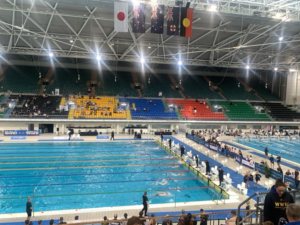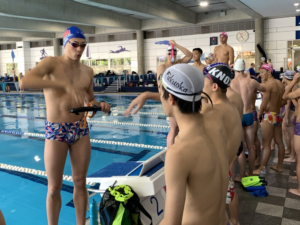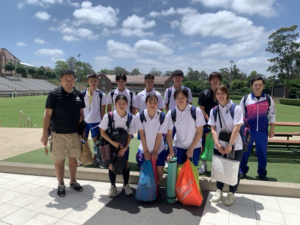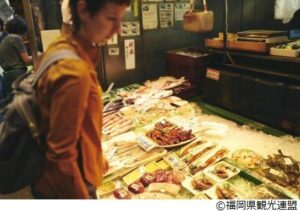 Fukuoka Prefecture is located in Kyushu, the southernmost island of Japan’s four main islands, and has been Japan’s gateway to Asia since ancient times. As an important transport hub, Fukuoka is connected to approximately 30 domestic and 20 international cities by direct flight. Travelling to other prefectures within Kyushu, or to other major cities in Japan such as Tokyo, Osaka and Kyoto is extremely convenient by bullet trains and express buses from Fukuoka City’s city centre, which is only five minutes away from Fukuoka Airport on the subway. Fukuoka was the only Japanese destination chosen by CNN Travel as one of the 19 best places to visit in 2019 due to its plentiful tourist attractions. Fukuoka Prefecture is divided into four regions: Fukuoka, Kitakyushu, Chikugo and Chikuho, and we will introduce a major attraction in each region below.
Fukuoka Prefecture is located in Kyushu, the southernmost island of Japan’s four main islands, and has been Japan’s gateway to Asia since ancient times. As an important transport hub, Fukuoka is connected to approximately 30 domestic and 20 international cities by direct flight. Travelling to other prefectures within Kyushu, or to other major cities in Japan such as Tokyo, Osaka and Kyoto is extremely convenient by bullet trains and express buses from Fukuoka City’s city centre, which is only five minutes away from Fukuoka Airport on the subway. Fukuoka was the only Japanese destination chosen by CNN Travel as one of the 19 best places to visit in 2019 due to its plentiful tourist attractions. Fukuoka Prefecture is divided into four regions: Fukuoka, Kitakyushu, Chikugo and Chikuho, and we will introduce a major attraction in each region below.
In the Fukuoka region, Dazaifu Tenmangu is an ancient shrine with over 1,100 years of history. The main hall was reconstructed in 1591, and the shrine has been designated as an Important Cultural Property of Japan. Many Japanese students visit the shrine to pray to the enshrined god of scholarship , and the shrine is also a popular destination for many overseas travellers. In addition to the splendid main hall, the grounds of the shrine is also impressive. There is a wide range of plants planted within the grounds, such as approximately 6,000 plum trees in almost 200 varieties, cherry trees and Japanese irises that bloom throughout the year.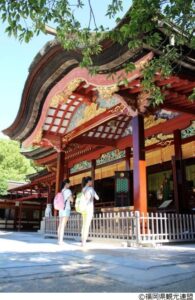
In the Kitakyushu region, there is a shopping street named Tanga Market. The Market was established in the late 1950s by a group of shop owners. If you set foot in the area, it will feel as if you have time slipped into the Showa period (1926-1989). Inside the Market, you can build your own “Daigaku don”, a rice bowl filled with fresh products. To build your own bowl, you should start by buying a bowl of white rice from the designated shop. After this, you can walk along the street and talk to the friendly staff at over 100 stores to buy and fill your bowl with fresh seafood, stewed dishes or a wide variety of fish cakes. Once your bowl is filled, enjoy eating your original creation of the Daigaku don!
In Yanagawa City in the Chikugo region, you can join a sightseeing boat tour along the moat around the ruins of Yanagawa Castle which was built over 400 years ago. From the boat, you can enjoy the views of the former castle towns and sense the remnants of their former glory as you listen to the boatman’s explanations and songs. Tourists can expect an exciting experience on the boat tour as there are narrow areas just wide enough for boats to pass through tightly, and bridges with clearance so low that all passengers must stoop down for the boats to pass under.
In the Chikuho region, Kaho Gekijo is a wooden Kabuki theatre that opened in 1931 and served as a popular entertainment facility for coal miners who risked their lives working in coal mines in the area. The theatre has been well maintained and still stands in its original state today. While watching a play or joining a backstage tour of the theatre, visitors can sense what it was like in the Showa period.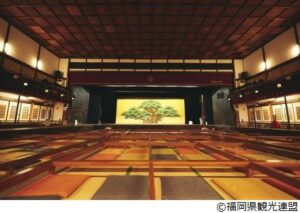
As well as sightseeing spots, Fukuoka is well known for its delicious cuisine in Japan. The Fukuoka-originated pork bone broth ramen, the local dish of chicken hot pot, locally caught fresh seafood, the locally produced Yame green tea which has a naturally refined sweet taste, local sake produced by one of the few famous sake breweries in Japan, and so on. You will certainly be able to find something that will suit your palate!
We hope you will visit us, and enjoy the deep history and culture of Japan and Fukuoka by visiting the many sightseeing spots and interacting with the friendly locals once the border restrictions have been lifted between Australia/New Zealand and Japan.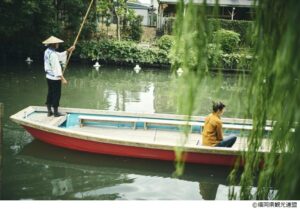

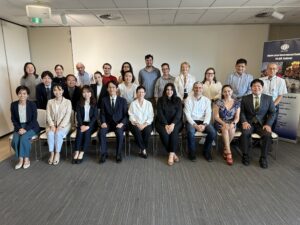
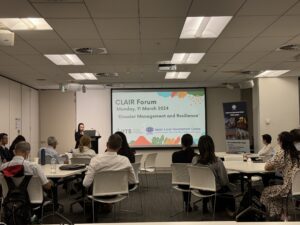
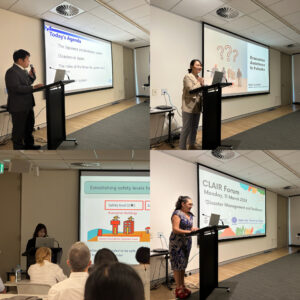
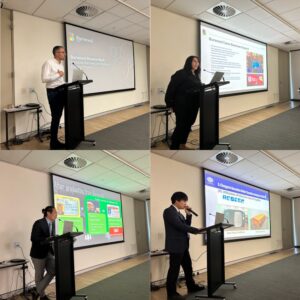
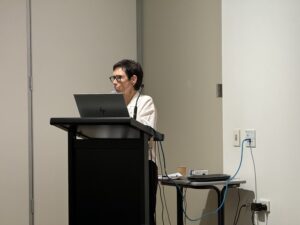
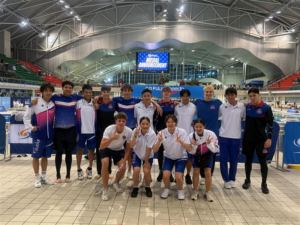 From the 3rd to the 13th of December, eight selected swimmers from the Fukuoka Swimming Association visited NSW, where they participated in joint training sessions with a local school and competed in the 2024-25 Speedo NSW Senior State Age Championships.
From the 3rd to the 13th of December, eight selected swimmers from the Fukuoka Swimming Association visited NSW, where they participated in joint training sessions with a local school and competed in the 2024-25 Speedo NSW Senior State Age Championships.